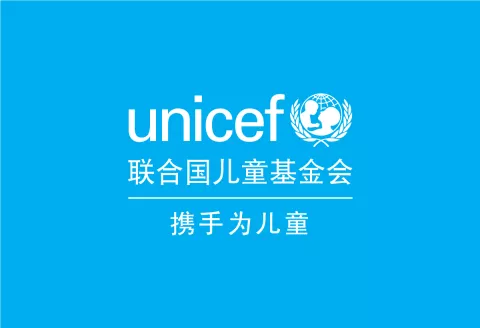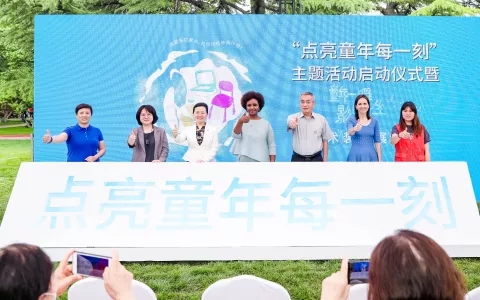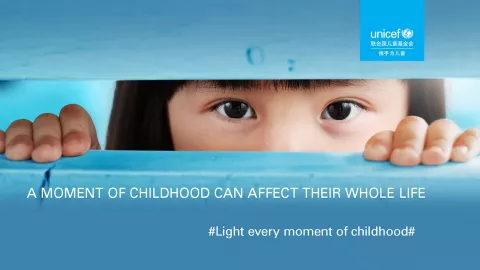UNICEF Ambassador Chen Kun promotes positive parenting to prevent violent disciplining of children following visit to Guangxi
The Integrated Child Protection Model addresses all forms of violence against children by engaging local authorities and communities and services. It also promotes positive parenting and other awareness raising efforts to prevent violence.
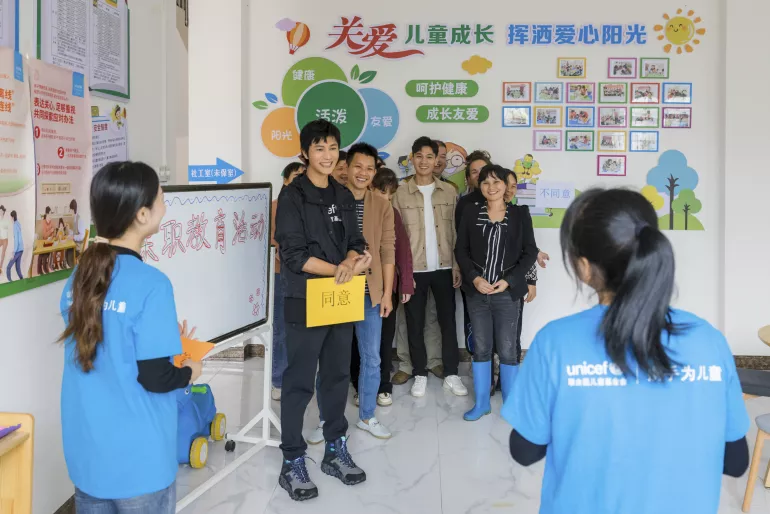
- Available in:
- 中文
- English
LINGSHAN, GUANGXI/BEIJING, 15 May 2023 – UNICEF Ambassador Chen Kun, a renowned actor and a father, met children and caregivers over the weekend taking part in a UNICEF-supported child protection programme at a visit to southern China’s Guangxi Zhuang Autonomous Region, UNICEF said today.
The Integrated Child Protection Model brings together child protection services from local authorities and communities, including positive parenting programmes and follow-up support, to prevent and address all forms of violence, abuse, and neglect. The Child Welfare Department under the Ministry of Civil Affairs has been jointly implementing the programme with UNICEF since 2020 in 12 counties in Guangxi, Jiangxi, Ningxia and Shandong.
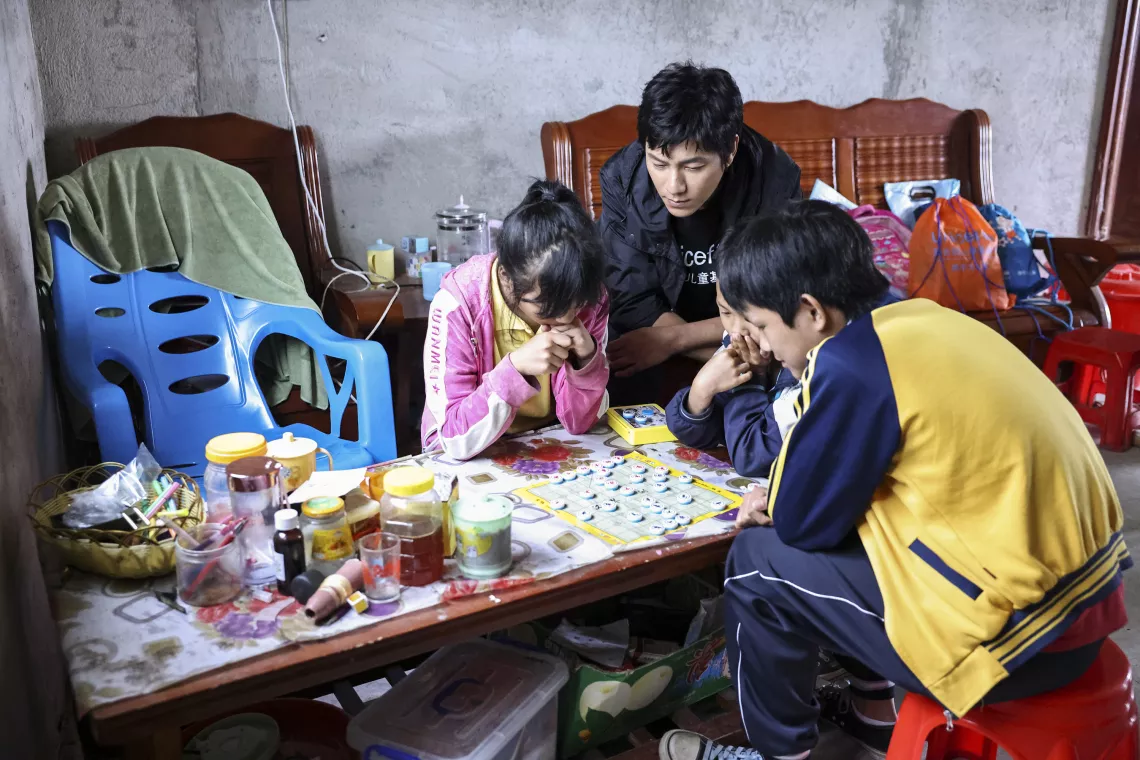
During his trip to Lingshan County, Chen Kun visited children and their families. He also listened to child directors and social workers on how they have identified children at risk and provided services to these children and their families. He joined children in sport and play, which are important to children’s well-being and development.
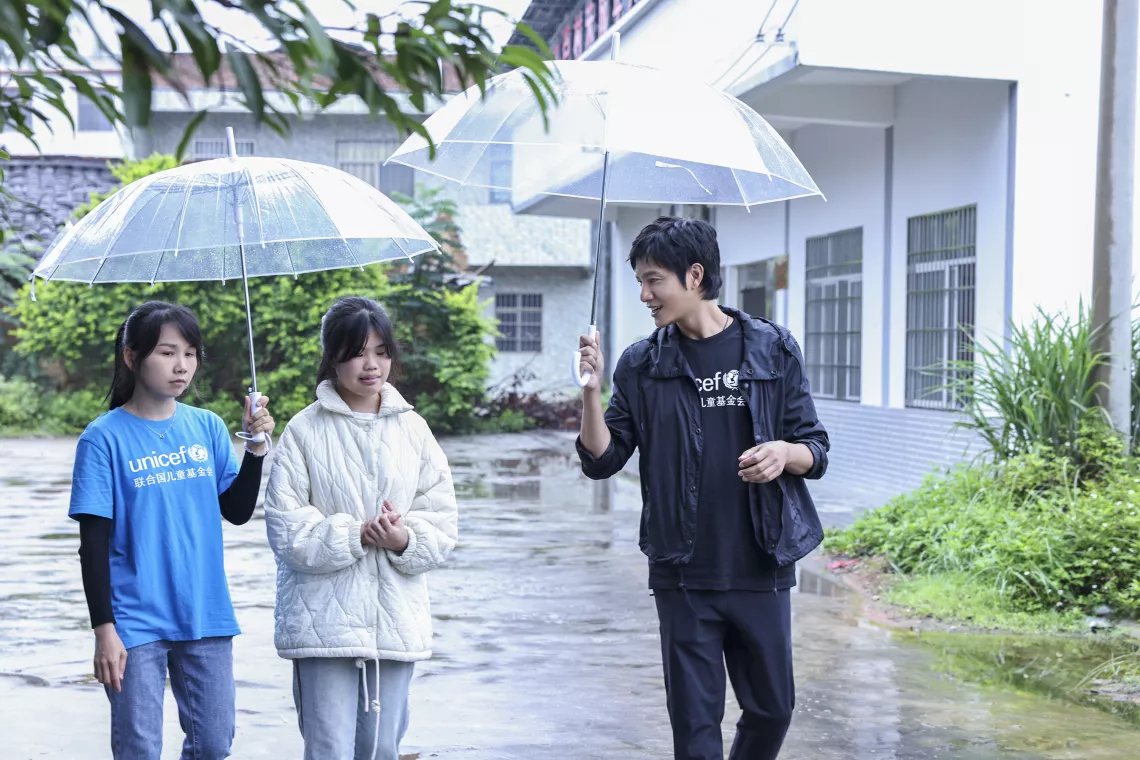
As an ambassador, he will share what he has seen and learned with the public and media, to shine a spotlight on the issue and mobilize support for change.
“No child should ever experience physical or emotional abuse. Families and communities should be a safe space for children to grow up in, but widespread acceptance of corporal punishment and harsh verbal insults in parenting is undermining children’s development and could cause long-term harm. We need to change it now,” said Chen. “It’s encouraging to see UNICEF and its partners taking actions to build an effective child protection system that is both preventative and responsive to the needs of children and their families.”
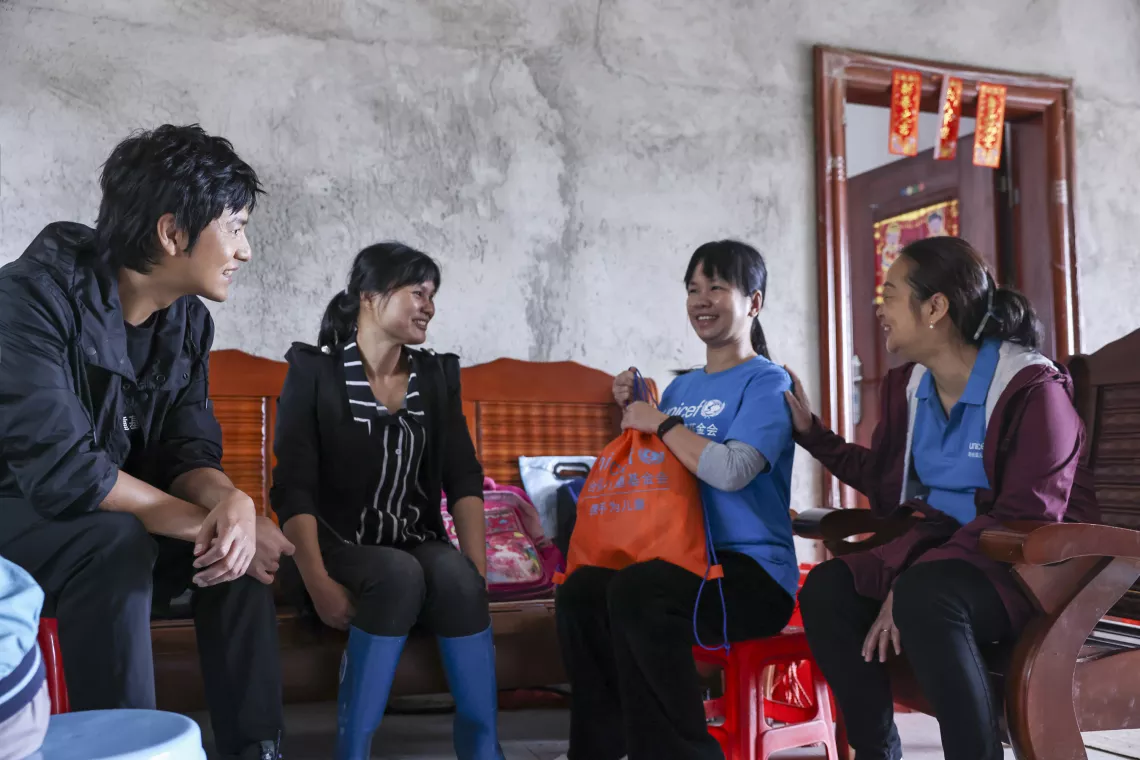
Globally two thirds of children have been exposed to physical punishment, a common practice worldwide. In 2015, a UNICEF-supported meta-analysis of 68 studies showed that the prevalence of physical abuse was over 26 per cent, emotional abuse was nearly 20 per cent, and neglect was 26 per cent among children aged 0-17 years in China.1
Through this programme, UNICEF helps the partner counties develop and strengthen the building blocks of a child protection system, through:
- agreed ways on how to coordinate the different sectors to identify risks and respond to cases of violence, abuse or neglect;
- a three-level (county-township-village) service delivery network providing a positive parenting programme, a psychosocial sport and play programme, and case management;
- capacity building of the child protection workforce on how to best support vulnerable children and families and how to prevent and respond to violence, abuse, and neglect.
The programme also promotes community structures such as children’s safe spaces for psychosocial activities and delivers parenting sessions to families to help them navigate the challenges of being a parent.
“UNICEF knows from its global experience and evidence generated over decades that the most effective way to improve the system is holistically, rather than trying to tackle problems issue-by-issue. We hope not only to make a difference for children in the 12 project counties, but also to scale up the model to other regions across the country,” said Amakobe Sande, UNICEF Representative to China.
“We look forward to continuing our strategic partnership with the Government to invest in delivery of quality services and the child protection workforce, to strengthen a comprehensive safety net for children who are experiencing violence and neglect or who are at risk.”
To encourage more awareness and shift the public narrative, UNICEF launched a campaign called ‘Light Every Moment of Childhood’ in December 2022, to spotlight the lifelong impact of positive discipline for children. The campaign also introduced evidence-based tips for parents and teachers dealing with difficult situations at home, in schools and online.
Starting one day before the upcoming International Children’s Day on 1 June and for the rest of the ‘Parenting Month’, more practical tips and informative activities will be promoted to the public, focusing on the different age groups of children.
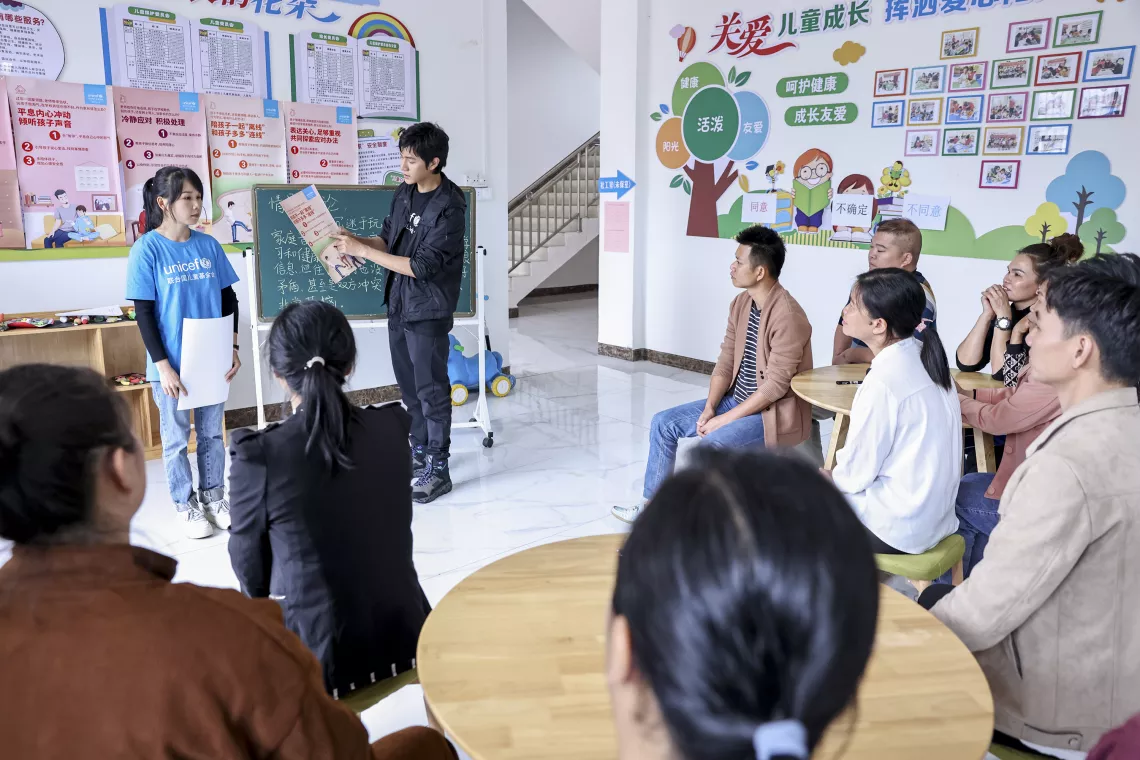
At the Children’s Place in Dalu Village, Chen Kun supported social workers to lead a positive parenting session for a group of caregivers, including those from families affected by migration. Using the parenting tips from the UNICEF campaign, the ambassador demonstrated to the caregivers how to handle different scenarios in parenting based on the core concepts of ‘empathy, communication, respect, role modelling and trust’.
“As a father myself, I know being a parent is never easy. During the visit, I had a chance to talk to some caregivers, hear the challenges they have in child rearing, and learn how the positive parenting sessions have helped them build a positive parent-child relationship,” Chen Kun said. “Parenting is a learned behaviour. We can learn to improve our relationship with children so that it is one of respect, trust, empathy, and communication. This can help our children thrive and develop as healthy adults.”
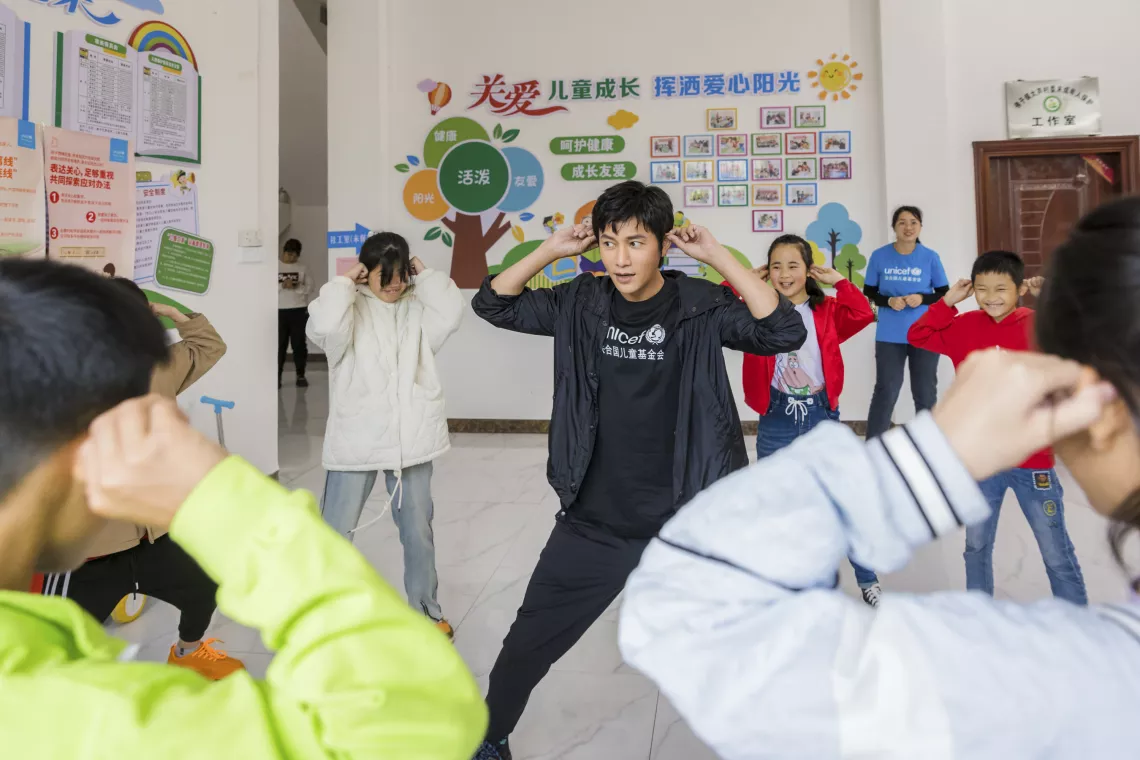
Research shows that positive parenting contributes to better functioning in the brain regions associated with emotions and cognition during the teen years.2 It also nurtures children's self-esteem, creativity, belief in the future and ability to get along with others. In the long run, it helps children develop better relationships, mental health, and well-being during adulthood.3 Evidence suggests that parenting programmes prevent violence.4
By the end of 2022, almost 16,000 caregivers from the programme counties had participated in positive parenting sessions.
Since 2010, Chen Kun has been working with UNICEF. He was appointed as a UNICEF Ambassador in 2012. He has been a strong advocate for UNICEF’s cause and its activities to promote children’s rights.
1 FANG Xiangming, et al., ‘The Burden of Child Maltreatment in China: A systematic review’, Bulletin of the World Health Organization, vol. 93, 2015, pp. 176–185C
2 Positive parenting predicts the development of adolescent brain structure: A longitudinal study. Developmental Cognitive Neuroscience, 8, 7-17.
3 Parental warmth and flourishing in mid-life. Social Science & Medicine, 220, 65-72.
4 INSPIRE: Seven strategies for Ending Violence Against Children | UNICEF
Media contacts
About UNICEF
UNICEF works in some of the world's toughest places, to reach the world's most disadvantaged children. Across more than 190 countries and territories, we work for every child, everywhere, to build a better world for everyone.
| Visit UNICEF Global website: www.unicef.org Visit UNICEF China website: www.unicef.cn Follow us on Sina Weibo: http://weibo.com/unicefchina Wechat: unicefchina |


